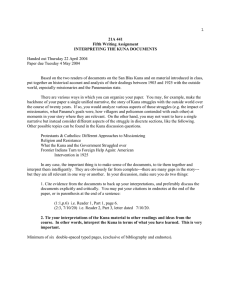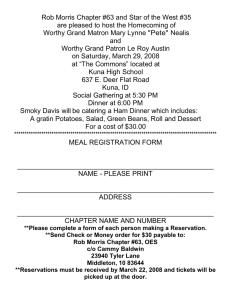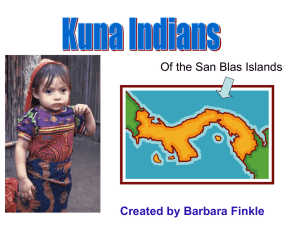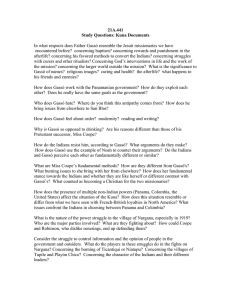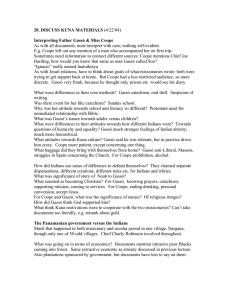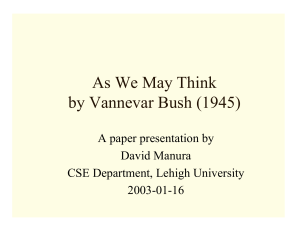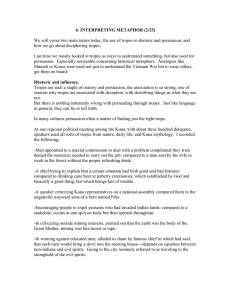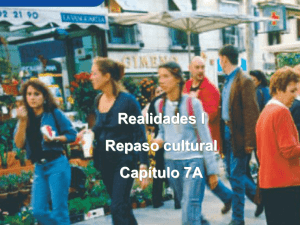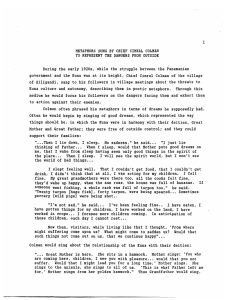19. HISTORICAL RESEARCH Historical Research on Kuna
advertisement
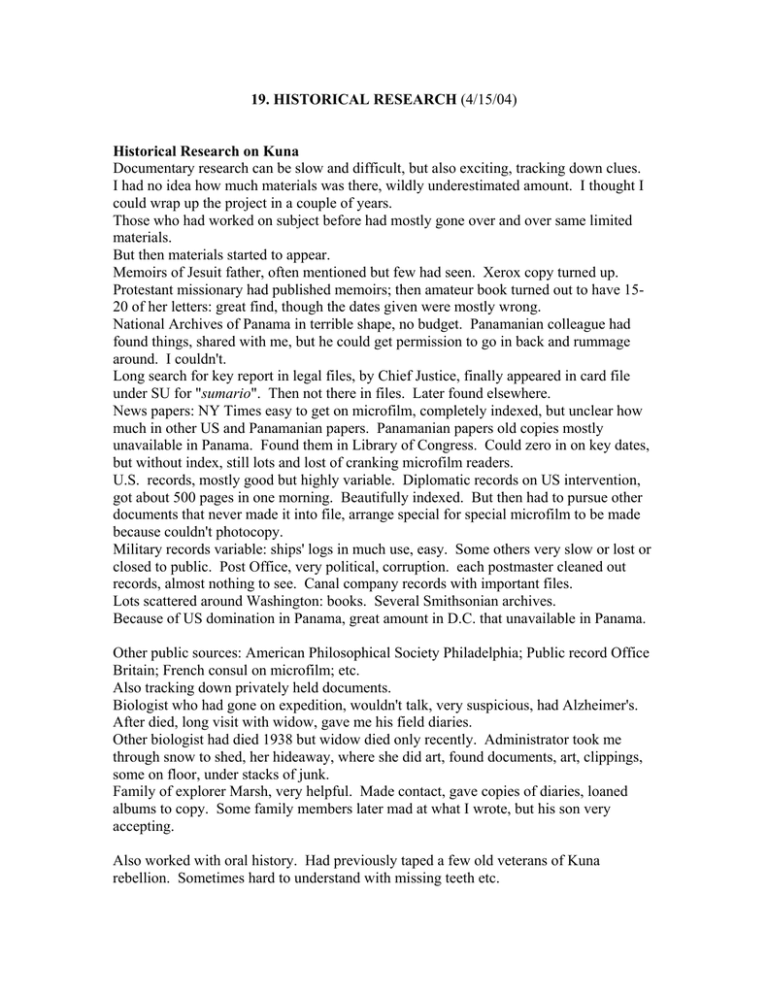
19. HISTORICAL RESEARCH (4/15/04) Historical Research on Kuna Documentary research can be slow and difficult, but also exciting, tracking down clues. I had no idea how much materials was there, wildly underestimated amount. I thought I could wrap up the project in a couple of years. Those who had worked on subject before had mostly gone over and over same limited materials. But then materials started to appear. Memoirs of Jesuit father, often mentioned but few had seen. Xerox copy turned up. Protestant missionary had published memoirs; then amateur book turned out to have 1520 of her letters: great find, though the dates given were mostly wrong. National Archives of Panama in terrible shape, no budget. Panamanian colleague had found things, shared with me, but he could get permission to go in back and rummage around. I couldn't. Long search for key report in legal files, by Chief Justice, finally appeared in card file under SU for "sumario". Then not there in files. Later found elsewhere. News papers: NY Times easy to get on microfilm, completely indexed, but unclear how much in other US and Panamanian papers. Panamanian papers old copies mostly unavailable in Panama. Found them in Library of Congress. Could zero in on key dates, but without index, still lots and lost of cranking microfilm readers. U.S. records, mostly good but highly variable. Diplomatic records on US intervention, got about 500 pages in one morning. Beautifully indexed. But then had to pursue other documents that never made it into file, arrange special for special microfilm to be made because couldn't photocopy. Military records variable: ships' logs in much use, easy. Some others very slow or lost or closed to public. Post Office, very political, corruption. each postmaster cleaned out records, almost nothing to see. Canal company records with important files. Lots scattered around Washington: books. Several Smithsonian archives. Because of US domination in Panama, great amount in D.C. that unavailable in Panama. Other public sources: American Philosophical Society Philadelphia; Public record Office Britain; French consul on microfilm; etc. Also tracking down privately held documents. Biologist who had gone on expedition, wouldn't talk, very suspicious, had Alzheimer's. After died, long visit with widow, gave me his field diaries. Other biologist had died 1938 but widow died only recently. Administrator took me through snow to shed, her hideaway, where she did art, found documents, art, clippings, some on floor, under stacks of junk. Family of explorer Marsh, very helpful. Made contact, gave copies of diaries, loaned albums to copy. Some family members later mad at what I wrote, but his son very accepting. Also worked with oral history. Had previously taped a few old veterans of Kuna rebellion. Sometimes hard to understand with missing teeth etc. Now did more in collaboration with young Kuna researchers. Mostly personal accounts. But one chief, Carlos López, had gone around interviewing people, putting together account. Was oral, not published, but very systematic. Lopez wanted to work more with me, but we never got chance. tremendous frustration. Later a version published. ' I was getting a good deal, but still big gaps. I knew there were government documents at headquarters, El Porvenir. But Kuna colleague said mostly gone. I think he just embarrassed that had never studied. Towards end I went. Treasure trove. Old termite-eaten buildings. Stacks of documents just thrown into closet. Incomplete, a mess, had to put in order, many pages partly eaten by termites, but very important records things researchers seldom get to see at least for records from own century---governments typically don't want them seen. Two trips of week or so. Madly taking notes, also making copies with camera. primitive setup with 35 mm. camera. copied c. 1500 pages. Then back at MIT, taped negatives together, had made into microfilm Several years of going through documents, studying, transcribing, digesting, indexing. Most important material: record of police, bureaucrats dealing with Indians: some of documents you have in reader. One consequence: Kuna colleague, same man, said I needed to get all the documents there microfilmed to save them. Loss when thrown out or misused as well as eaten by bugs. So in 1990s did project to microfilm for Kuna to have in own archive. Small-scale project, but hard to run. Manager on island, running portable micro-camera, needed generator. Difficult communications. Errors, series that had to be redone. Just finishing now, save most but not all of the remaining documents. Very time-consuming but I owed the Kuna. Then whole question of interpreting documents. Aren't self-evident. Get lies, contradictions. You see in documents about burning of one island. oral history had date off by several years, written reports got some facts better, but oral history more truthful. Reports lied. But with another incident, oral history says Kuna just victims or incident just happened. Reports convincing that they carefully planned attack on police---though we might think under the circumstances that was OK. Like looking at scientific data. Look for patterns, then search systematically. E.g. saw lots of complaints about weak budget, shortages, so went through more systematically looking for documents on that subject, obviously crucial in why didn't conquer Indians sooner. Similarly, saw that lost of rival messages. saw that lot of conflict played out into communications, war of information. Themes, reveal mentality of bureaucrats. Nationalism key: couldn't stand non-Latino culture, especially because country dominated by U.S. Worse, saw Indians in cahoots with Americans. generally blaming troubles on third-party trouble-makers. not entire truth but reveals thinking. Long process of bringing all the materials together to make pattern. Very tricky. people sometimes prefer historical myths. We will see what both Kuna and other Panamanians think of what I say.
